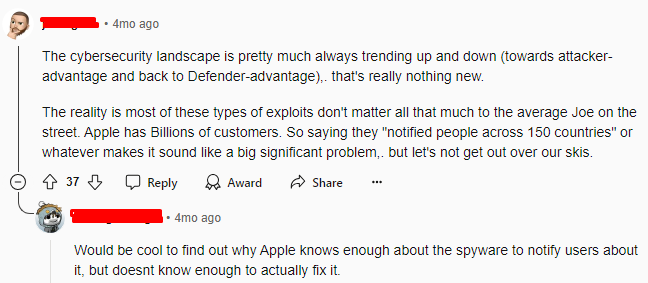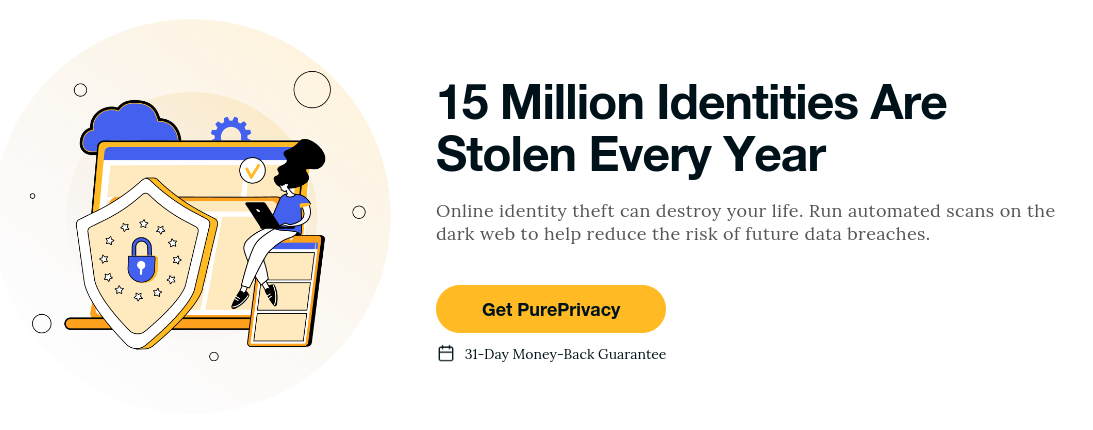Table of Content
Have you seen a message on your iPhone saying your password was leaked?
If you have seen this message, then your information might be at risk of data theft or identity fraud.
Back in 2019, a serious data leak on iPhones affected millions of people. Almost 1279 users had their personal information stolen, which affected around 165 million people.
IPhones are best-suited for online privacy, but they can still be hacked.
If you're not careful, hackers can steal your data from your iPhone or any publicly available site like LinkedIn, Adobe.
In this guide, we’ll explore:
- The most recent iPhone data leaks
- The potential risks involved
- Important actions to protect your information.
What Happened in the iPhone Data Leak?
A study by Dr. Stuart Madnick at the Massachusetts Institute of Technology reveals a global increase of approximately 2.6 billion personal records exposed in data breaches in the last few years alone, and this has continued to get worse in 2023.
Many iPhone users were alerted in 2023 to password breaches due to data breaches, highlighting ongoing concerns about data security.
Apple's iCloud Keychain function, which checks stored passwords for known data breaches, led to this situation. Users are notified to take action, like changing their passwords to improve security, when a password is found to have been breached.
Discover if Your Most Critical Identifiers Have Been Exposed on the Dark Web
Receive timely alerts and actionable insights with PurePrivacy's Dark Web Monitoring.
In only the first nine months of 2023, there were almost 20 percent more breaches in the United States than in any previous year.
With nearly 80 percent of breaches involving data kept in the cloud, a 2023 survey revealed that cybercriminals' goal was extremely evident. This follows an almost double increase in attacks on cloud services between 2021 and 2022.
Malicious In-App and Push Notifications on iPhones
According to recent reports, many iPhone users were at risk of data theft when they were clicking on malicious push notifications and in-app advertisements.
By using this technique, hackers were stealing private information of several iPhone users.
And it turns out, popular social media apps (Facebook, Instagram, TikTok) were using a vulnerability in their regular push notifications to harvest user data.
All of your texts are leaked by default on an iPhone. You need to turn this off. #iPhone #Apple pic.twitter.com/zWUIeSQ93c
— Robert (@bSmithMagic) August 31, 2024
What Was the Impact of This Data Breach on iPhone Users?
Two thousand twenty-three iPhone data breaches significantly impacted users' personal security, privacy, and trust in digital services. Alarmingly, saved passwords were found, raising fears of unauthorized access and prompting immediate security measures.
Advanced spyware targeting iPhones increased this year, raising questions about iOS's security. This resulted in people being more cautious online and having financial repercussions.
Data breaches weakened consumer confidence in digital services and raised concerns about the security of personal data. This doubt impacted Apple, making people extra careful about managing their security settings.

What Are the Potential Privacy Risks from Exposed Data?
Sensitive personal information can be hacked or leaked, exposing impacted parties to various privacy risks and consequences. Among the principal dangers that might arise are:
Identity Theft
Cybercriminals exploit personal information to create false accounts, obtain loans, and commit identity theft, causing significant damage to the victim's credit and financial situation.
Seychelles has banned Nigerian passport holders from their country, especially those with tourist visa and the reasons for this decision was because Nigerian citizens are trafficking their people, involved in smuggling of drugs, credit cards scams and identity theft ?
— chidera? (@222pr3ttydiana) September 4, 2024
Targeted Frauds
Leaked contact information can expose victims to targeted attacks, spam, and phishing schemes, as scammers may exploit personal information to enhance their schemes' safety.
Damage to Reputation
Victims may be exposed to blackmail or humiliation through private connections or health records, leading to social shame and reputational damage.
Physical Dangers
It can be dangerous for children or victims of domestic abuse to be exposed to location data, house addresses, or sensitive information about family members.
Discrimination
Algorithmic bias in AI systems could potentially increase discrimination against victims based on disclosed information about gender, sexual orientation, religion, race, or health.
Mental Distress
Data breaches can cause severe anxiety, terror, and mental distress for victims, potentially leading to long-term psychological effects.
Businesses handling sensitive data must prioritize strong security measures and have thorough data breach response strategies to reduce these risks. After a breach, people should also take proactive measures to look for indications of identity theft and improper use of their personal data.
How to Take Immediate Action in Case of a Data Leak
If you believe your iPhone data has been leaked, here's what you should do:
| Change your passwords immediately. | Change the passwords on every internet account linked to the stolen Apple ID or email address. Use secure passwords that are hard to figure out. |
| Enable two-factor authentication | Adding two-factor authentication to your accounts gives them an additional security layer. Even if someone knows your password, you must get a code to log in on your iPhone or another device. |
| Monitor your accounts | Monitor your credit card bills, bank accounts, and other internet accounts often for unusual activity. Report any unlawful transactions immediately. |
| Be cautious of phishing attempts. | Avoid emails, texts, or phone calls requesting personal details or requesting that you click on suspicious links. These may be attempts to steal your information even further. |
| Contact Apple support | To report the data breach and receive assistance, contact Apple's customer service. They may provide more advice and resources. |
Hackers are always one step ahead of you and can steal your data by tricking you in many different ways.
To stay safe from prying eyes and hackers, you can use a privacy app like PurePrivacy on your devices.
Protect Yourself from Online Threats with PurePrivacy
PurePrivacy can keep your data safe online, stop internet trackers, and enhance social media privacy.
- Dark Web Monitoring: Check if your data is exposed on the dark web.
- Social Privacy Manager: Enhance privacy settings on social networking sites.
- Tracker Blocker: Stop data collection and online spying of hackers.
- Remove My Data: Automatically opt-out of 200+ data broker sites.

Monitor the Dark Web for Your Data
It constantly checks the dark web to see if your information has been leaked and alerts you if it finds anything.
Block Invisible, Online Trackers
It stops websites and other companies from collecting browsing data and tracking your online activity.
Send Automated Opt-Out Requests
To reduce the exposure of your information, you can recurrently request to opt out of more than 200 data brokers.
Improve Your Social Media Privacy
To further secure your private data, you can customize your privacy settings on all social networking sites.
Frequently Asked Questions (FAQs)
-
What should I do if my data is leaked?

Change your passwords as soon as possible, monitor your accounts closely for any strange behavior, and think about using PurePrivacy for extra security if your data is hacked.
-
How secure is the iPhone?

Because of its closed-source code and advanced security protections, most people choose the iPhone over Android. Unlike Android, Apple's source code cannot be viewed or altered by anybody. This implies that although it's less likely, hackers might still identify flaws to exploit.
-
How can I prevent a data leak?

Implement strong access controls, educate employees, conduct regular security assessments, encrypt data, and have an incident response plan.
-
What are the common causes of data leaks?

Human error, phishing attacks, malware infections, unpatched vulnerabilities, and insider threats.
In Conclusion
The iPhone data breach shows how important it is for people to take personal safety measures and how businesses must protect customer data.
You may improve the security of your data on many online sites and ensure that your personal information is safe from potential dangers by using PurePrivacy along with a VPN.






